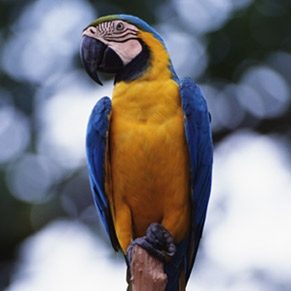
Are you considering getting a pet bird? You wouldn’t be alone – there are approximately 16 million birds in U.S. households alone , according to the American Pet Product Manufacturers Association.
Before buying or adopting a pet bird, however, experts recommend asking yourself these 6 aviary-minded questions first to determine if you can wing it as a bird owner.
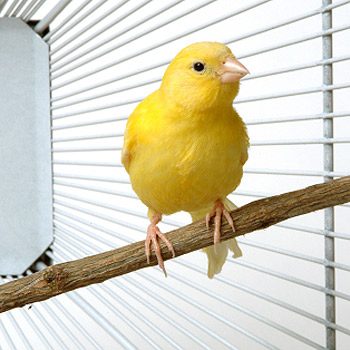
What’s the Best Breed for Your Needs?
For starters, it’s important to determine what aspect of having a bird is most important to you, said Nancy Peterson, issues specialist with The Humane Society of the United States, based in Washington, D.C.
“Canaries and finches are known for their song, color and activity,” Peterson said. “A cockatiel may be more suitable if you want a companion bird. If you want a talker, consider a parakeet.”
Kristin L. Nelson, DVM, of Scottsdale, Ariz., doesn’t recommend birds for children under age six because of potential injury to the bird or to the child.
“For children age seven to 12, I suggest budgies, cockatiels and lovebirds. Parrots are best reserved for adults and teenagers,” Nelson said.
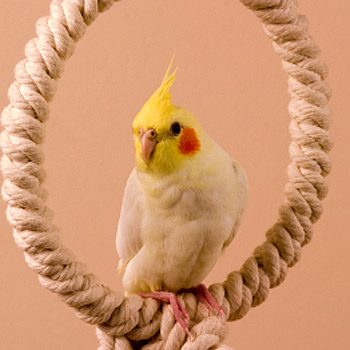
Can You Afford all That’s Required?
Aside from the fee to purchase or adopt a bird, you’ll need to buy a cage as large as you can accommodate, quality food and supplements, supplies and bird toys, veterinary care and more, Peterson said. These combined costs can run into hundreds or even thousands of dollars every year, depending on the breed and health of the bird.
“A well-balanced, optimal diet can be pricey, especially if you want to provide your bird with the best organic and vitamin-rich foods,” said Jennifer Miller, emergency relief responder with International Fund for Animal Welfare, based in Yarmouth Port, Mass.
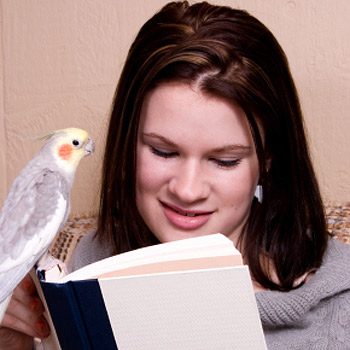
Are You Ready to be a Responsible Caregiver?
“Successfully owning a bird takes a lot of patience and a huge amount of commitment, especially for larger birds,” said Alison Minton, a cockatoo owner in New York City. Cages need to be cleaned on a regular basis, and “food and water needs to be refreshed at least once a day,” she said.
Birds require specialized care and the dedication of a devoted owner who understands the behavioral and physical sensitivities of all bird types, Miller said.
“Caring for birds can be very different and slightly more challenging than caring for a dog or cat,” Miller said. “By nature, birds are incredibly active and flight driven. Captivity can sometimes alter these behaviors, but instinctively birds tend to demand constant attention, mental stimulation and life-long companionships.”
That also means providing plenty of out-of-the-cage time if possible, Miller said. “A well-rounded, social, healthy bird needs to roam and interact in the house.”
What’s more, some birds like macaws, toucans, conures and cockatoos can live 50 years or more and small birds can enjoy a lifespan up to 10 years or longer, Peterson said.
“A responsible bird owner needs to make sure the bird will always have a caretaker,” even going so far as to make arrangements in a will, Minton said. “Have a backup plan in place, such as a pet trust.”
Additionally, if you plan on being away from home for extended periods, you’ll need to arrange for a responsible pet-sitter who can provide for at least the bird’s basic needs, Miller said. A great resource for pet sitters is Sittercity.com, an online platform that connects pet owners with experienced pet sitters and conducts background checks on all pet sitters.
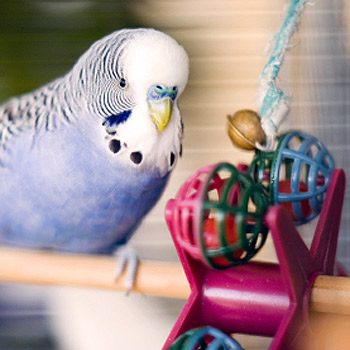
Do You Have the Right Home?
Evaluate your home and living conditions carefully, Miller said.
“If you live in a small condo or single-family home and an extra half a room is difficult to come by, choosing a smaller bird may be a better choice because a smaller cage can be easily placed in the bedroom or next to the couch,” Miller said. “An optimal location is inside a quiet room with a good amount of sunlight, a view to an outside environment and sufficient ventilation.”
Prior to choosing a bird, “determine what the acceptable noise threshold is for your home,” Nelson said. Parrots like to scream on occasion – this is a natural behavior and typically occurs at dawn and dusk. If you, your family or neighbors cannot tolerate noise, focus on small birds. For those in apartments, I recommend finches, budgies, cockatiels or lovebirds.”
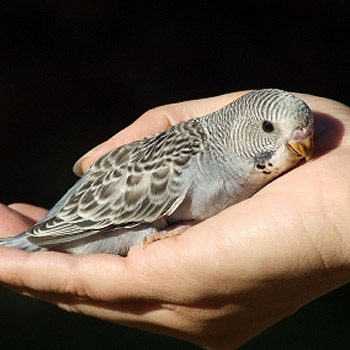
Can You Keep Your Bird Healthy and Safe?
It’s essential to learn the symptoms of a sick bird and to “find a veterinarian who specializes in avian medicine,” Peterson said. “Birds should also be screened for psittacosis, a contagious bacterial infection, before bringing them into your home.”
For their own safety, “birds need to be protected from wind, cats, dogs, vandals, the sun and diseases that can be transmitted by wild birds,” Peterson said.
A bird may not be a good choice if you have other pets that could taunt or scare the animal, Miller said.
In addition, be prepared to safeguard your pet from common household dangers to birds such as smoke from burning food or overheated ovens, non-stick cookware and tobacco smoke, as well as hairspray, pesticides, household cleaners and other aerosols, Peterson said.
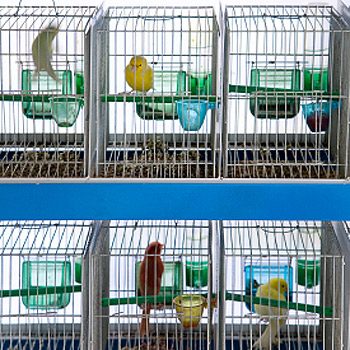
Where Will You Find Your Bird?
“When you purchase a bird from a pet store, you run the risk of supporting ‘bird mills,'” Peterson said. “If you are determined to buy from a breeder, seek out a local breeder and visit to be sure you know what the conditions are.”
Dr. Greg Harrison, DVM, of West Palm Beach, Fla., supports this idea and said that the best place to get a bird is from a domestic breeder with good references. To help ensure you get a healthy bird, make sure you use a breeder that specializes in the particular breed of interest. Your breeder should be able to recommend a vet, and visa versa, Harrison said.
Harrison also provided the following characteristics to look for in an ideal breeder:
- Raises small numbers of birds
- Specializes in a few species
- Does not mix larger parrots with small species, such as cockatiels, lovebirds, and budgerigars
- Selects breeders to maximize ideal pet characteristics
- Sells only weaned, hand-fed parrots
- Sells birds directly to clients, and not through pet stores or bird fairs
- Raises birds on pellets